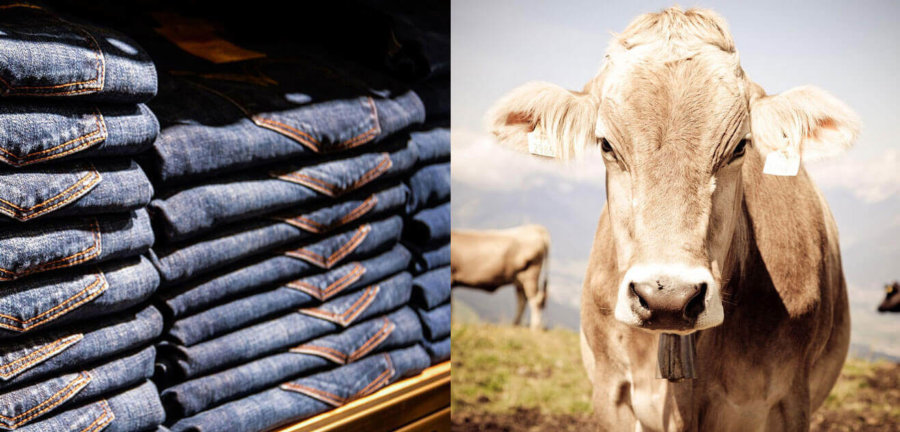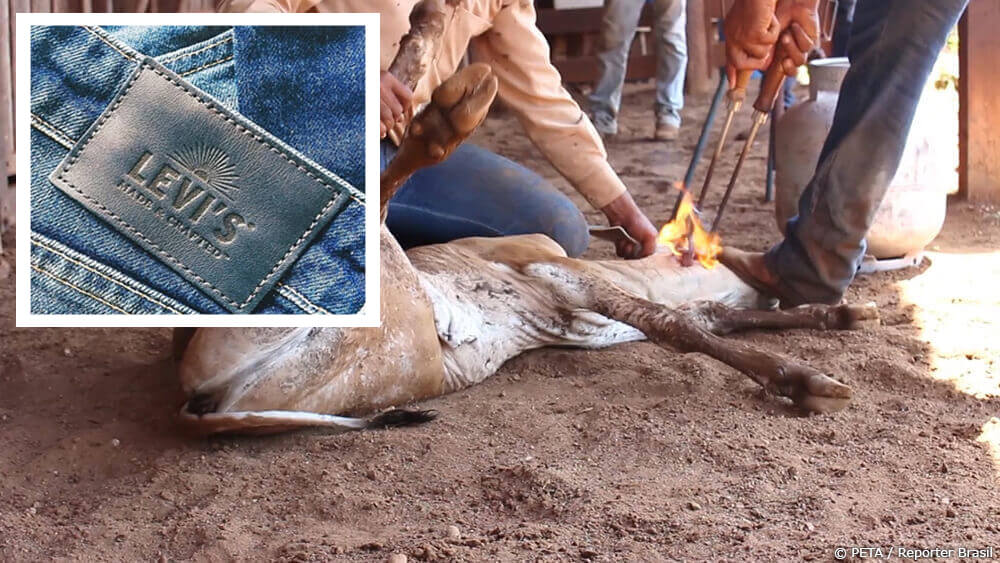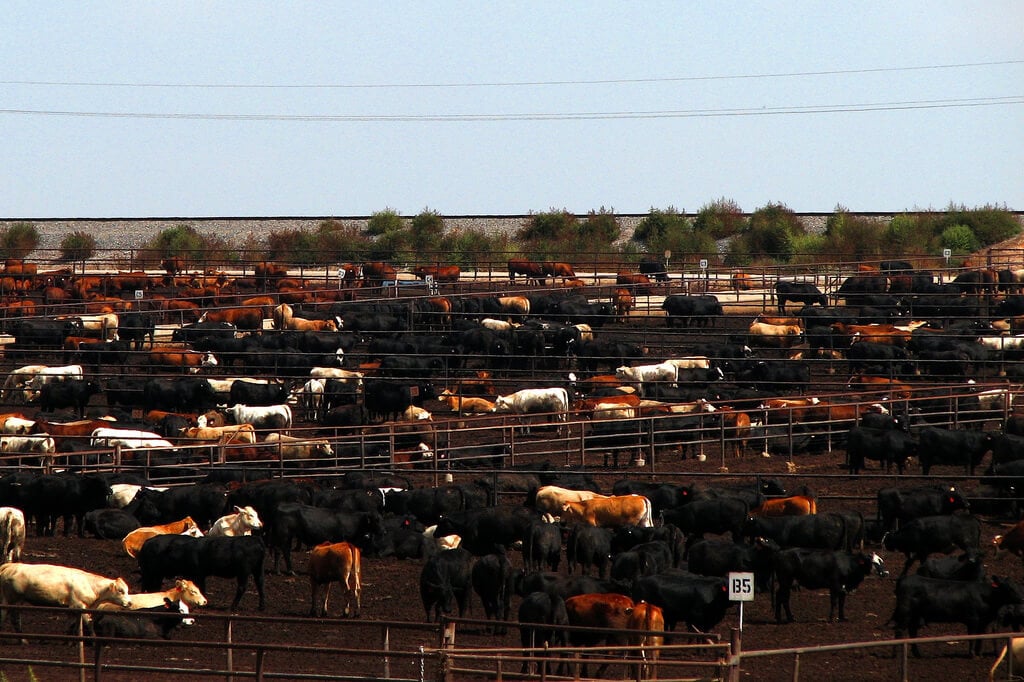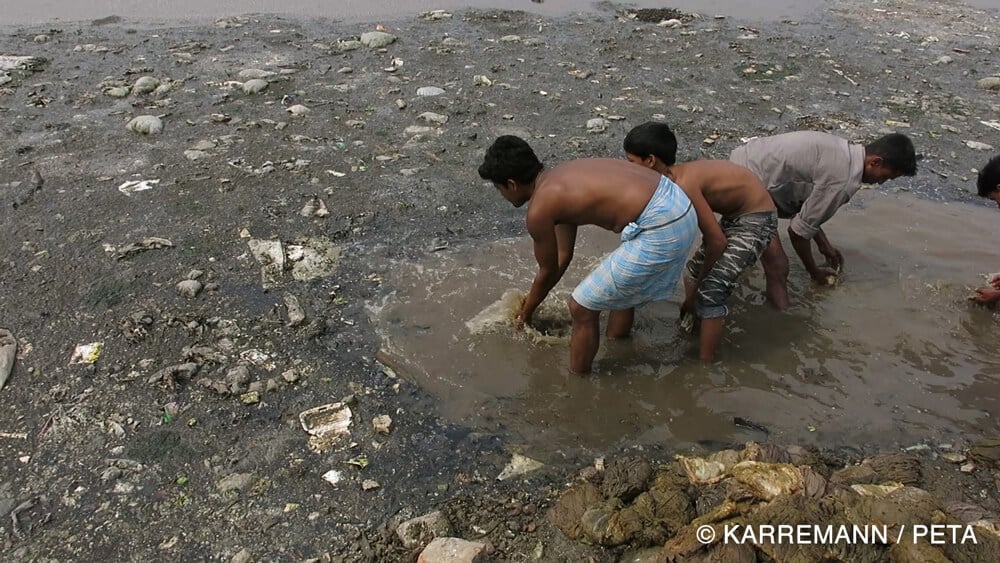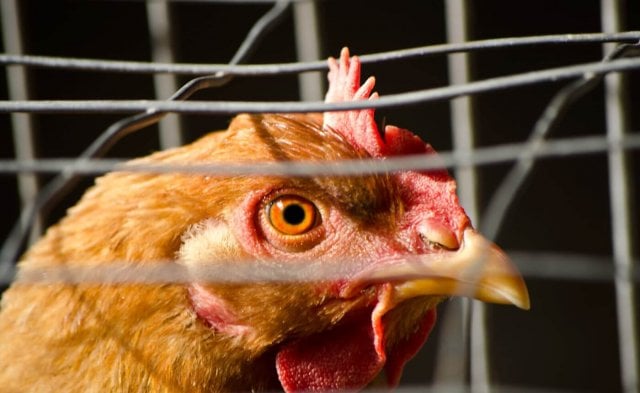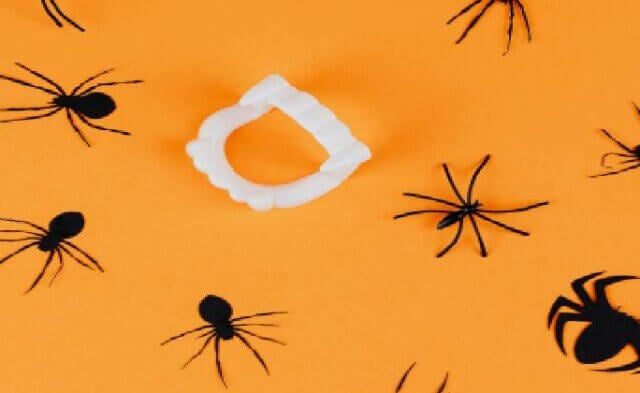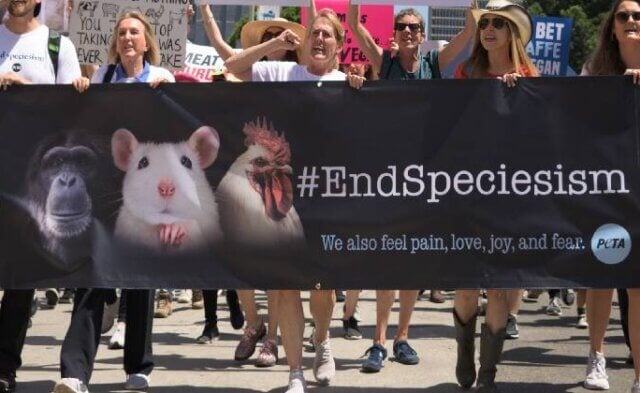Written By Katherine Sullivan
Your denim pants may not be vegan, and here’s the cruel and senseless reason why.
Are jeans vegan?
The good news is that denim itself is vegan. Denim is a fabric made of sturdy twill and cotton, neither of which is derived from animals. But some jeans are still not vegan. Most jeans have a patch on the outside of the waistband, in the back, that features its maker’s logo. Many of these patches are vegan leather, made of paper or polyurethane—but not all. Some brands still use leather patches made of cows’ skin, despite being fully aware of the negative impact that leather has on the environmentand the abuse endured by cows who’re killed for their skin.
So which brands still sport cruelly obtained leather patches?
Most notably, Levi’s!
Today’s consumers want kind, fashionable, eco-friendly designs. But Levi’s refuses to get with the times. Denim is already vegan, yet the company continues to use cows’ skin for the patches on its jeans. The cows endure confinement, extreme crowding, diseases, and food and water deprivation. They’re branded, their tails are docked, and they’re dehorned and castrated—often, without painkillers. Afterward, they’re transported hundreds of miles to feedlots and slaughterhouses, where many are skinned while still conscious.
But it’s not just the cows who’re suffering. Mother Earth is feeling the impact of Levi’s poor decisions, too. Although the company makes sustainability claims, we know the truth: Animal leather has at least three times the negative environmental impact as most vegan leather. Leather is a coproduct (not “byproduct,” as is so often claimed) of the unsustainable meat industry, so it’s no surprise that it’s also severely damaging the environment.
READ MORE ABOUT THE CRUEL CONNECTION BETWEEN BEEF AND LEATHER PRODUCTION.
Consider the massive amounts of land, water, and edible crops that are used to feed animals bred to be killed, instead of being used to feed hungry, malnourished humans.
Then consider the waste produced by these animals before they’re slaughtered—untreated, unsanitary, and bubbling with chemicals. It’s often left to decompose in huge lagoons or sprayed over crop fields, resulting in runoff that contaminates nearby soil and waterways.
Then consider the tanning process—i.e., the way skin is turned into “leather” so that it doesn’t rot in buyers’ closets. It requires massive amounts of energy and dangerous chemicals, including mineral salts, formaldehyde, coal-tar derivatives, and various oils, dyes, and finishes, some of them cyanide-based. People who work in and live near tanneries are exposed to these toxic chemicals, which have been linked to possible increases in cancer rates.
All this—just so that Levi’s can slap a useless patch on the back of some of its jeans. If the company truly wants to legitimize its claims of being a sustainable and compassionate industry leader, it’ll switch to vegan patches immediately—something that high-end denim companies like Nudie Jeans have already done.
Tell Levi’s to Shape Up
Denim pants, dungarees, jeans, blue jeans… whatever you want to call them, they should be vegan. No questions asked. Tell Levi’s to align its business practices with its professed beliefs by making the switch to vegan leather today:

